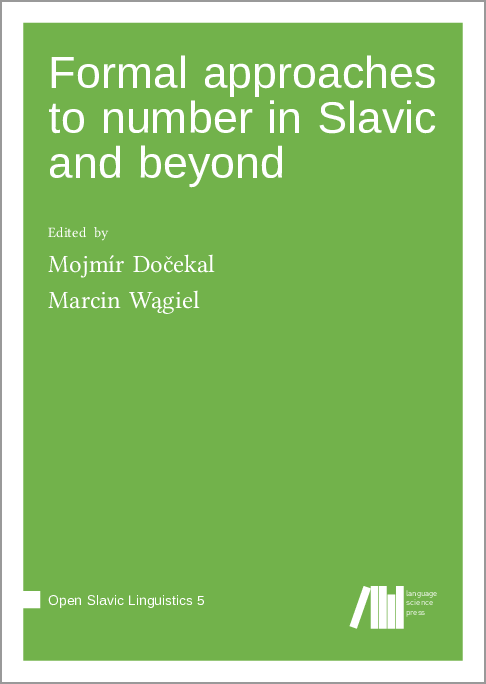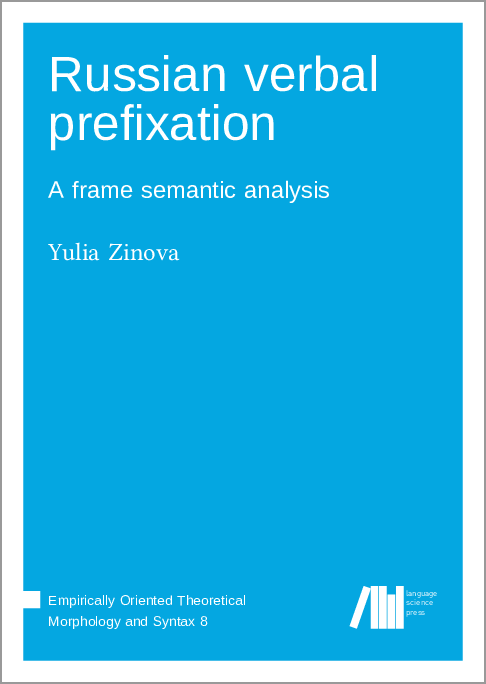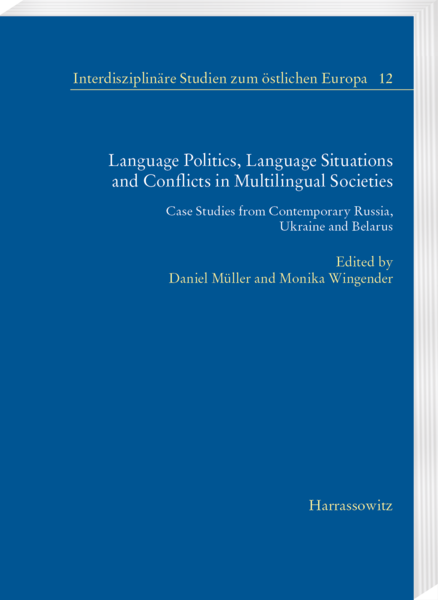In der letzten Zeit sind u.a. diese frei verfügbaren Titel erschienen:
Formal approaches to number in Slavic and beyond
Mojmír Dočekal & Marcin Wągiel (Hrsg.)
https://langsci-press.org/catalog/book/316 & https://doi.org/10.5281/zenodo.5082006
The goal of this collective monograph is to explore the relationship between the cognitive notion of number and various grammatical devices expressing this concept in natural language with a special focus on Slavic. The book aims at investigating different morphosyntactic and semantic categories including plurality and number-marking, individuation and countability, cumulativity, distributivity and collectivity, numerals, numeral modifiers and classifiers, as well as other quantifiers. It gathers 19 contributions tackling the main themes from different theoretical and methodological perspectives in order to contribute to our understanding of cross-linguistic patterns both in Slavic and non-Slavic languages.
Russian verbal prefixation: A frame semantic analysis
Yulia Zinova
https://langsci-press.org/catalog/book/150 & https://doi.org/10.5281/zenodo.4446717
This book addresses the complexity of Russian verbal prefixation system that has been extensively studied but yet not explained. Traditionally, different meanings have been investigated and listed in the dictionaries and grammars and more recently linguists attempted to unify various prefix usages under more general descriptions. The existent semantic approaches, however, do not aim to use semantic representations in order to account for the problems of prefix stacking and aspect determination. This task has been so far undertaken by syntactic approaches to prefixation, that divide verbal prefixes in classes and limit complex verb formation by restricting structural positions available for the members of each class. I show that these approaches have two major drawbacks: the implicit prediction of the non-existence of complex biaspectual verbs and the absence of uniformly accepted formal criteria for the underlying prefix classification. In this book the reader can find an implementable formal semantic approach to prefixation that covers five prefixes: za-, na-, po-, pere-, and do-. It is shown how to predict the existence, semantics, and aspect of a given complex verb with the help of the combination of an LTAG and frame semantics. The task of identifying the possible affix combinations is distributed between three modules: syntax, which is kept simple (only basic structural assumptions), frame semantics, which ensures that the constraints are respected, and pragmatics, which rules out some prefixed verbs and restricts the range of available interpretations. For the purpose of the evaluation of the theory, an implementation of the proposed analysis for a grammar fragment using a metagrammar description is provided. It is shown that the proposed analysis delivers more accurate and complete predictions with respect to the existence of complex verbs than the most precise syntactic account.
Language Politics, Language Situations and Conflicts in Multilingual Societies: Case Studies from Contemporary Russia, Ukraine and Belarus
Daniel Müller & Monika Wingender
https://www.doi.org/10.13173/9783447392365
In order to shed light on the complex relationships between language(s) and conflict(s) and, in so doing, to contribute to the necessary expansion of the research field into language conflicts, the present volume addresses a broad spectrum of questions and issues regarding language politics and language situations in connection with language conflicts in multilingual societies in Eastern Europe. Most notably, this volume is a combination of theoretical and methodological considerations with elaborate empirical research in the form of mass surveys or focus group discussions. Accordingly, the present volume consists of a methodological-theoretical introduction to linguistic conflict research followed by three thematic sections on language interactions, language politics, and language situations in multilingual societies in Eastern Europe.
This book is the second volume presenting the results of an international sociolinguistic project comparing bi- and multilingual situations in present-day Ukraine and Russia. This trilateral project was funded by the Volkswagen Foundation (2016–2019) within the framework of its funding programme Trilateral Partnerships – Cooperation Projects between Scholars and Scientists from Ukraine, Russia, and Germany. This volume presents the contributions to the project’s concluding conference in Giessen in 2019.



